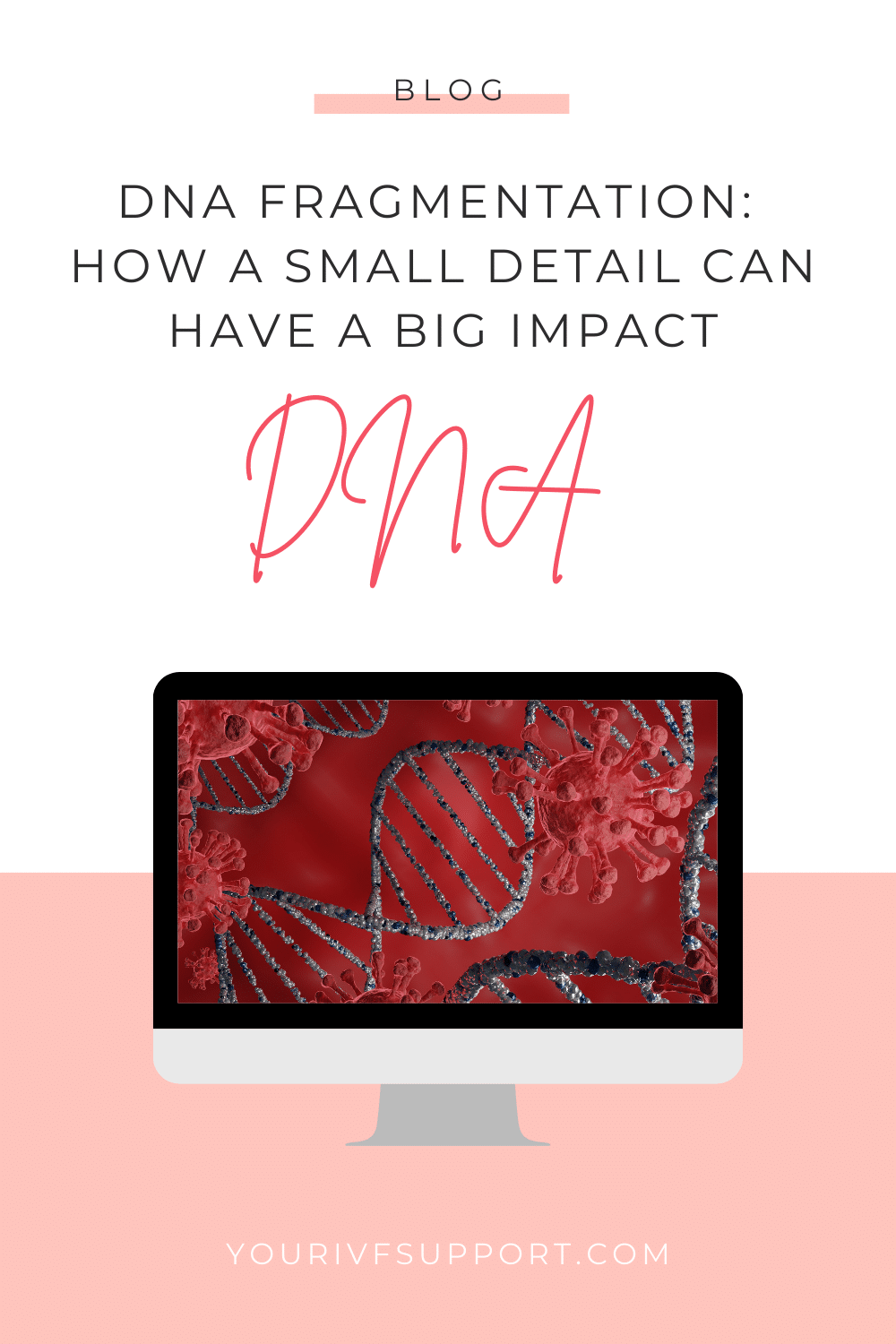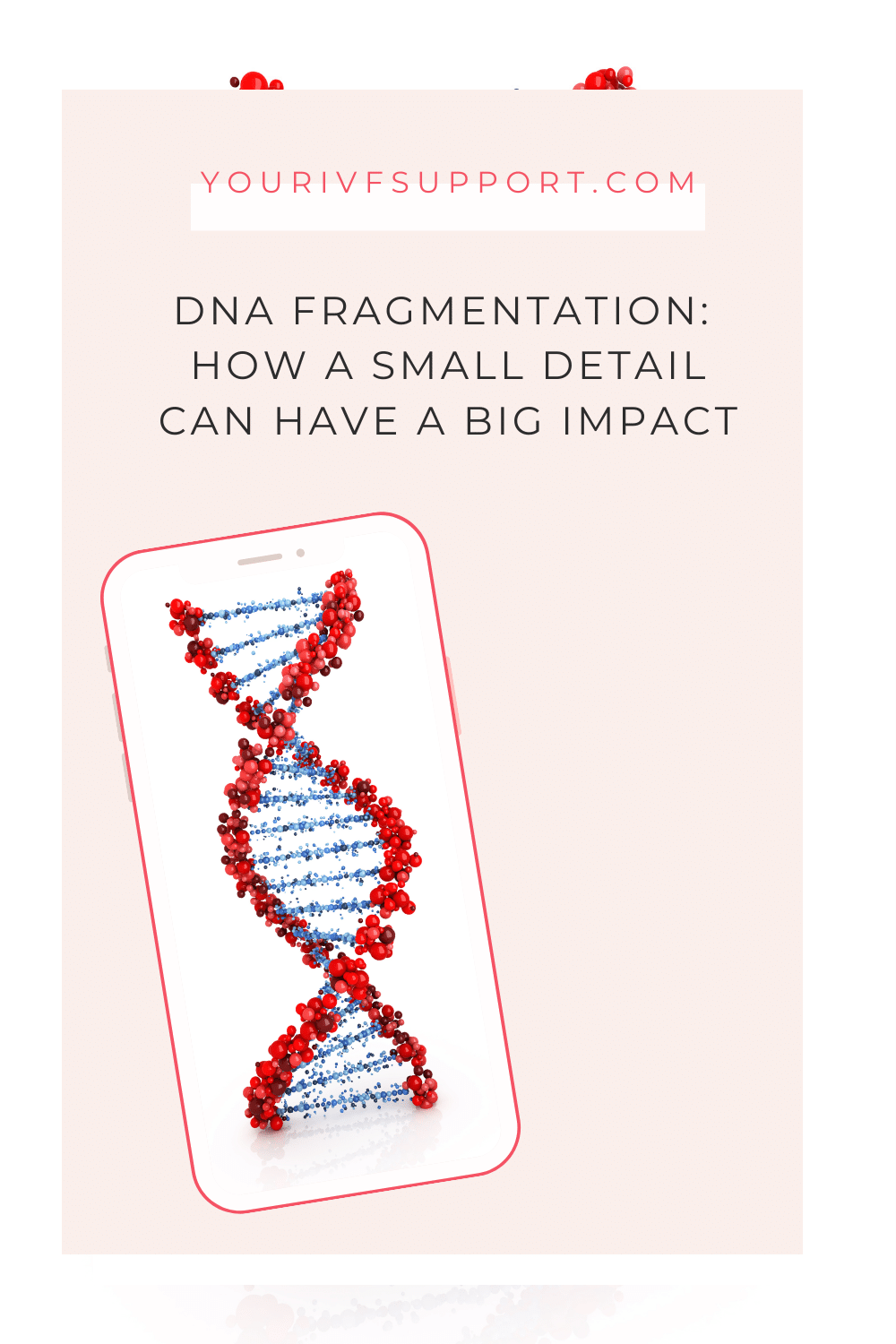Welcome, women who want to have children! As you embark on the exciting journey to fulfilling your desire to have children, there are many factors to consider. One of these is DNA fragmentation. This blog article will help you understand the concept of DNA fragmentation and its potential impact on your fertility and pregnancy success. So sit back, relax and let us take you into the fascinating world of DNA fragmentation!
What is DNA fragmentation?
DNA fragmentation is a term that refers to the state of DNA in a man's sperm. DNA is the genetic material that contains the information needed for an organism to develop. Fragmentation is when the DNA breaks down into smaller pieces, causing damage to the genetic material. This can lead to problems with fertilisation and the development of an embryo.
Why is DNA fragmentation important?
DNA fragmentation is an important indicator of sperm quality and can have a direct effect on fertility and pregnancy. Studies have shown that increased DNA fragmentation is associated with a lower chance of successful pregnancy and an increased risk of miscarriage. It is therefore important to understand DNA fragmentation and, if necessary, take steps to minimise its effects.
How is DNA fragmentation measured?
DNA fragmentation can be measured using specific laboratory tests. One of the most common tests is called the Sperm DNA Fragmentation Index (DFI). This test measures the percentage of sperm with fragmented DNA and gives an indication of the extent of DNA damage. A high DFI value indicates increased DNA fragmentation, while a low value indicates less fragmentation and better sperm quality.

How is DNA fragmentation measured?
DNA fragmentation can be measured using special laboratory tests. One of the most common tests is called the Sperm DNA Fragmentation Index (DFI). This test measures the percentage of sperm with fragmented DNA and gives an indication of the extent of DNA damage. A high DFI value indicates increased DNA fragmentation, while a low value indicates less fragmentation and better sperm quality.
The impact of DNA fragmentation on fertility
DNA fragmentation can have a direct effect on fertility. Sperm with high levels of fragmentation are less viable and have lower motility, which can affect their ability to successfully fertilise the egg. They may also have difficulty getting past obstacles on their way to the egg, such as the cervix or fallopian tube environment. This reduces the likelihood of successful fertilisation and ultimately pregnancy.
It is important to note that not all sperm in a sample need to have high levels of DNA fragmentation. There is often a proportion of sperm with intact DNA that can achieve fertilisation. However, the total number of these 'healthy' sperm can be affected by high fragmentation, further reducing the likelihood of a successful pregnancy.
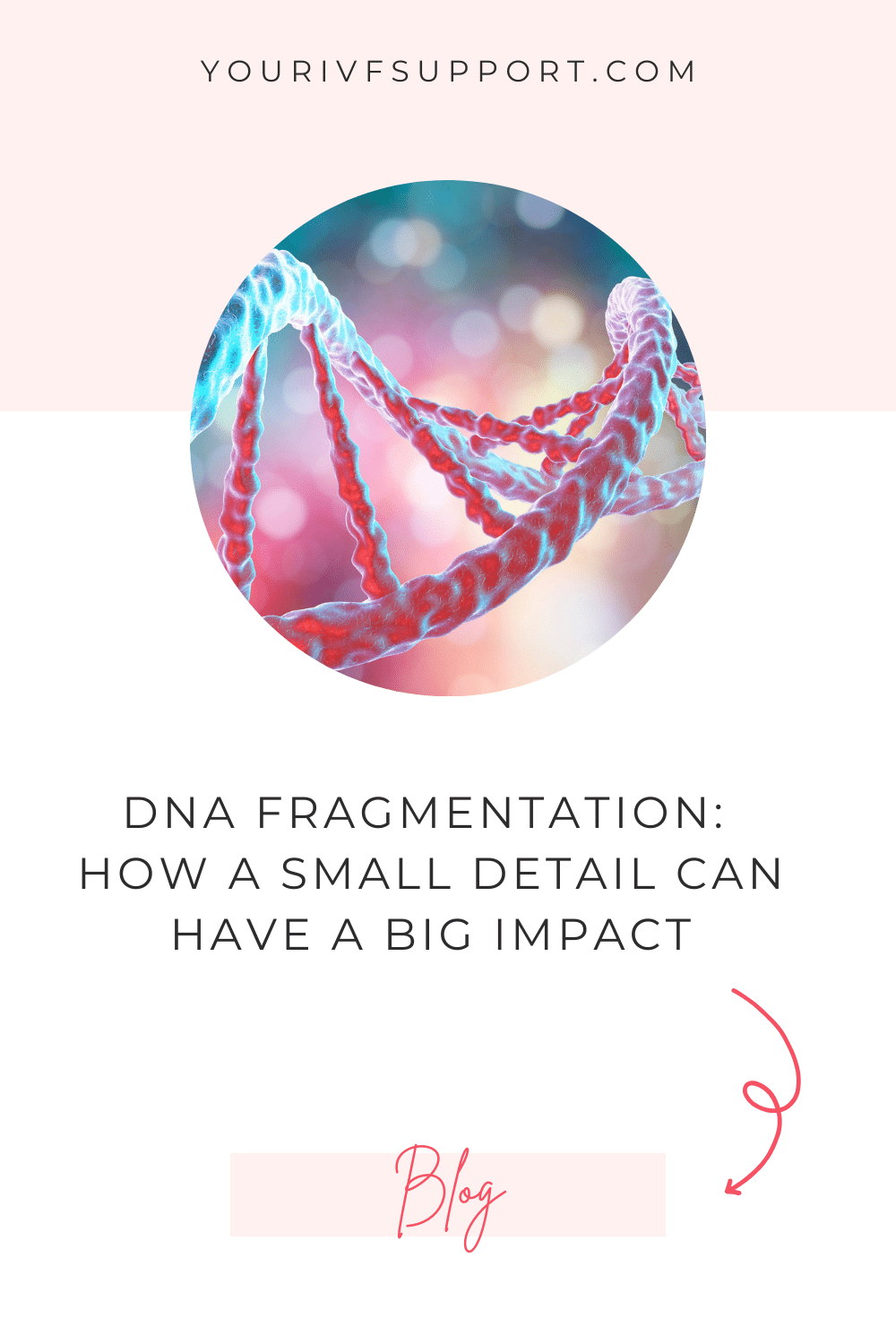
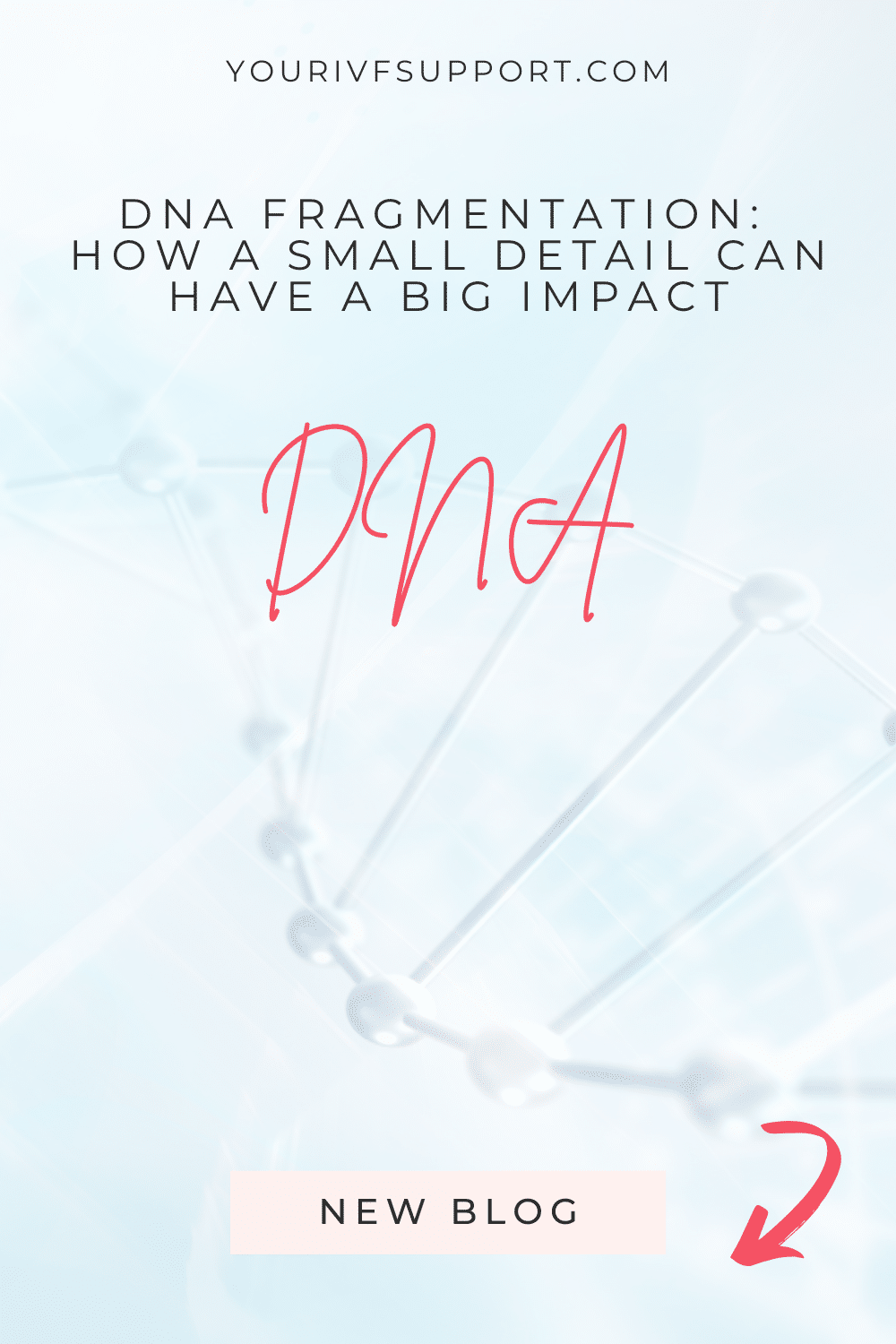
The impact of DNA fragmentation on pregnancy
The effects of DNA fragmentation are not limited to fertility, but can also affect the development of a pregnancy. Studies have shown that increased DNA fragmentation is associated with an increased risk of miscarriage. The damaged DNA in the sperm can affect the development of the embryo and lead to genetic abnormalities that can jeopardise a successful pregnancy.
Increased DNA fragmentation can also affect the success of assisted reproductive techniques such as in vitro fertilisation (IVF). High fragmentation can affect fertilisation and embryo development, resulting in a lower implantation rate and lower pregnancy rate.
Causes of DNA fragmentation
There are several factors that can contribute to DNA fragmentation. Some of the more common causes are:
Oxidative stress: Oxidative stress occurs when the amount of reactive oxygen species in the body exceeds the body's antioxidant defences. This can damage DNA and increase fragmentation.
Age: A man's age can affect DNA fragmentation. Studies have shown that older men tend to have higher levels of fragmentation than younger men.
Smoking and drinking alcohol: Smoking and excessive alcohol consumption can lead to increased oxidative stress and damage DNA, which in turn increases fragmentation.
Environmental factors: Exposure to environmental toxins such as chemicals, heavy metals and radiation can damage DNA and increase fragmentation.
It is important to note that not all men with DNA fragmentation have fertility problems. Some men may be able to conceive successfully despite high levels of fragmentation. However, the effects may vary from person to person.
"It is important to note that reducing DNA fragmentation does not guarantee a successful pregnancy, as there are many other factors involved. However, reducing fragmentation can improve chances and optimise fertility."
How can DNA fragmentation be reduced?
The good news is that there are things you can do to reduce DNA fragmentation. Here are some things you can try:
Lifestyle changes: A healthy lifestyle can help reduce DNA fragmentation. This includes a balanced diet, regular physical activity and avoiding harmful habits such as smoking and excessive alcohol consumption.
Antioxidants: Antioxidants are compounds that can reduce oxidative stress in the body. A diet rich in fruits, vegetables, nuts and whole grains provides natural antioxidants. In some cases, antioxidant supplements may also be recommended.
Stress management: Chronic stress can cause oxidative stress and increase DNA fragmentation. It is important to incorporate stress management techniques such as meditation, yoga, relaxation exercises or other stress-reducing activities into your daily life.
Avoid environmental toxins: Try to minimise exposure to environmental toxins. This includes avoiding the use of harmful chemicals in the home, protecting yourself from heavy metals and minimising exposure to radiation.
Medical treatments: In some cases, it may be necessary to consider medical treatments to reduce DNA fragmentation. Your doctor may be able to give you specific recommendations, such as the use of antioxidant medications or low-fragmentation sperm selection techniques.
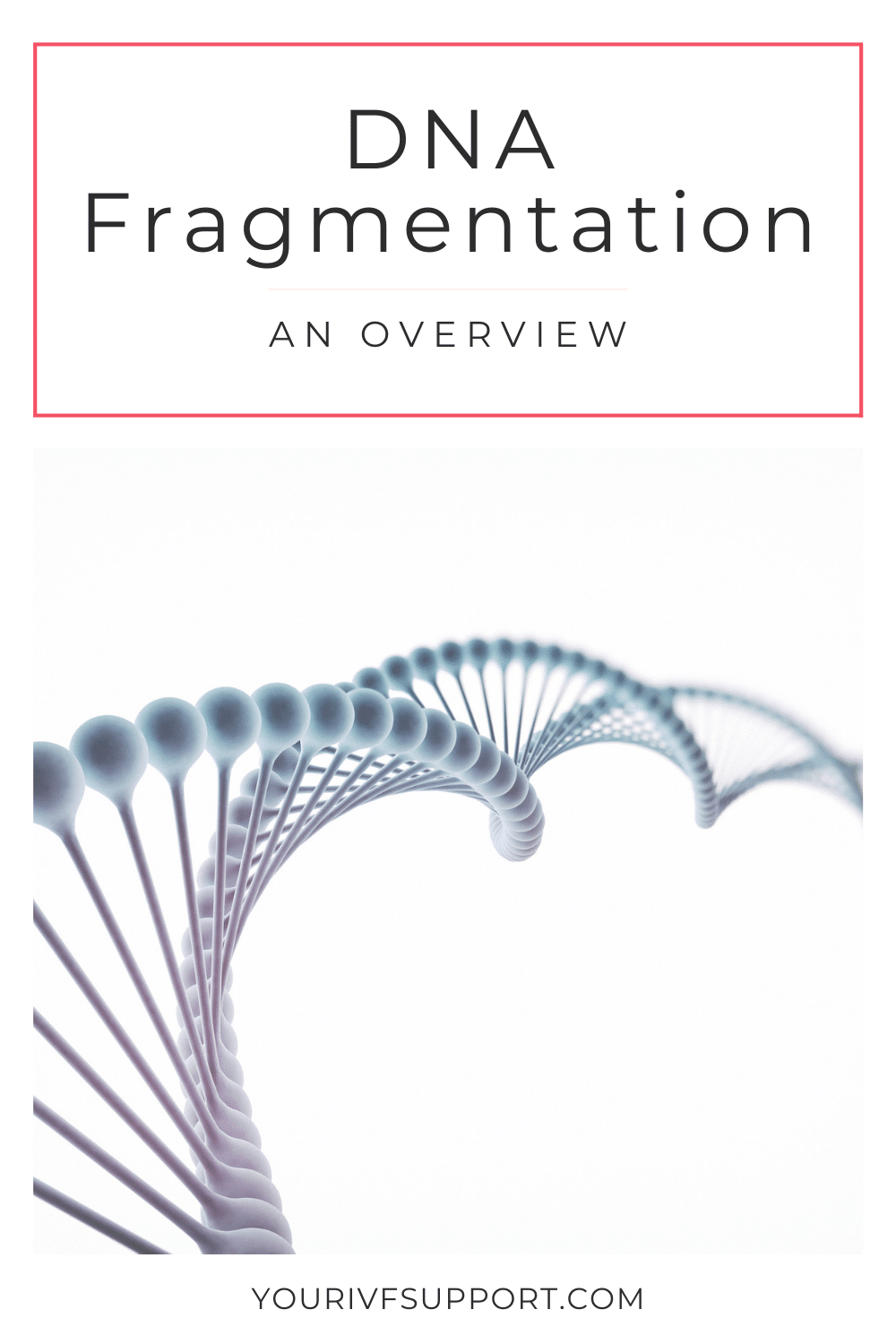
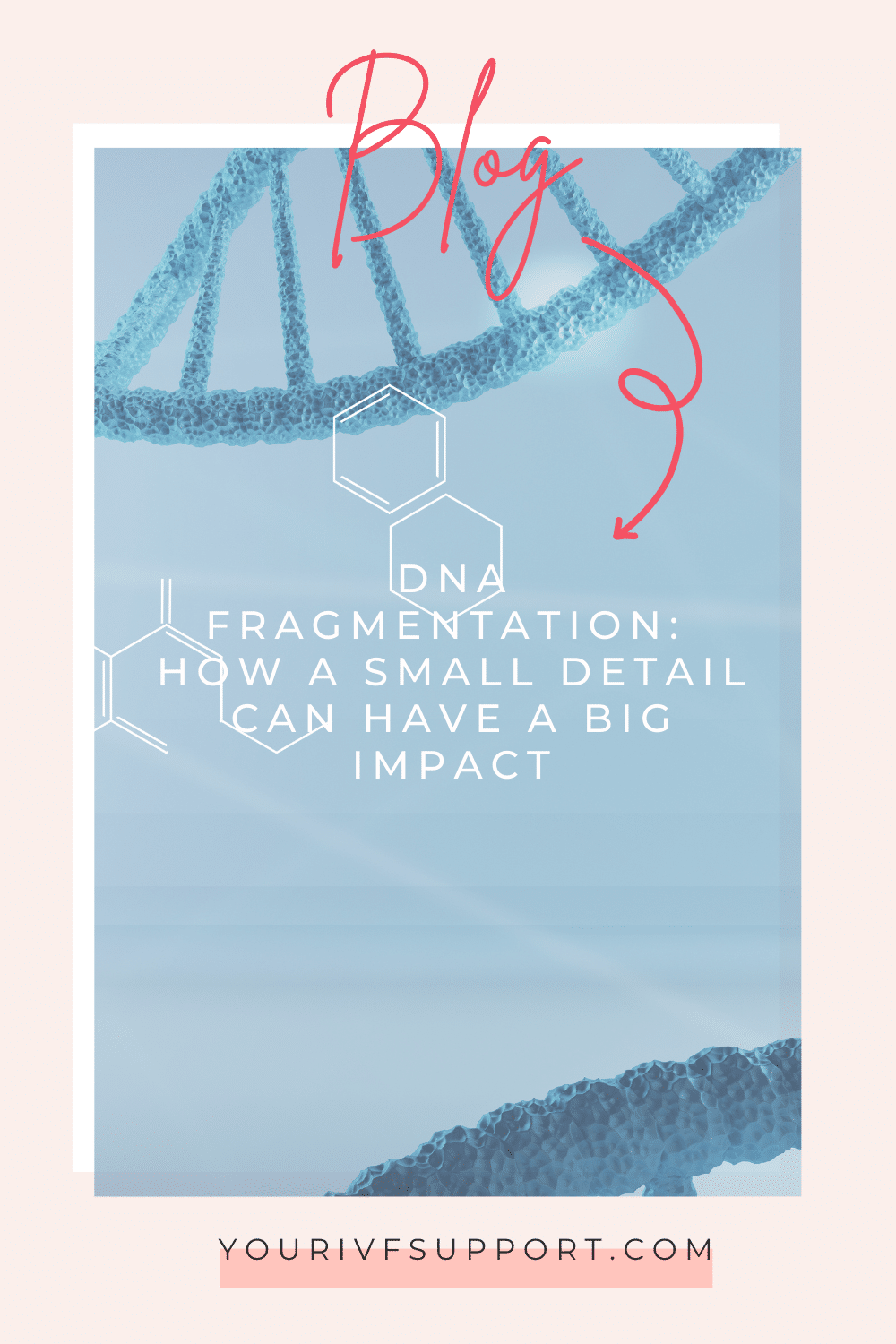
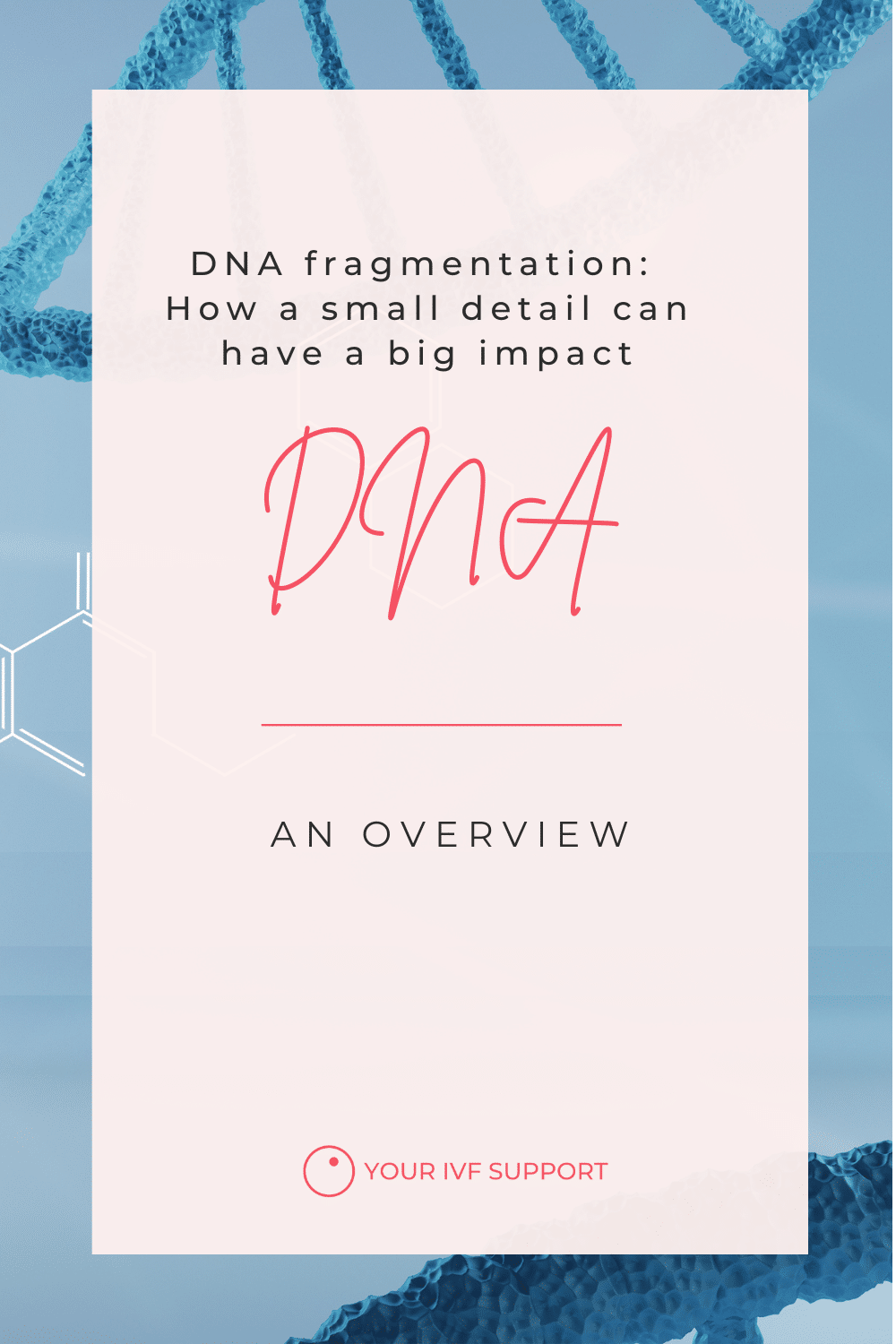
Conclusion
DNA fragmentation plays an important role in fertility and pregnancy success. It is particularly important to be aware of this if you are trying to have children. Measuring DNA fragmentation can provide valuable information about sperm quality, and taking steps to reduce fragmentation can increase the chances of a successful pregnancy.
Remember that everyone is unique and there is no one-size-fits-all solution. Always consult a reproductive health professional for an informed diagnosis and the best course of action for your particular situation. Stay positive and confident that advances in medical technology will help you fulfil your desire to have a child.
You are now ready to incorporate the knowledge of DNA fragmentation into your desire to have children. I wish you and your family all the best!
Today I would like to introduce you to a fascinating topic that is of great importance to anyone who wants to have a child: DNA fragmentation.
DNA fragmentation plays a crucial role in fertility and the success of a pregnancy. It is therefore important to be informed about this topic, especially if you are trying to have a child.
Accurate measurement of DNA fragmentation can provide valuable information about sperm quality. Measures to reduce fragmentation can significantly increase the chances of a successful pregnancy.
However, it is important to remember that each man is unique and there is no one-size-fits-all solution. Therefore, I always recommend consulting a reproductive health professional for an informed diagnosis and the best course of action for your individual situation.
I would encourage you to remain positive and trust in the advancement of medical technology. Today, modern medicine offers amazing possibilities to fulfil our desire to have children.
